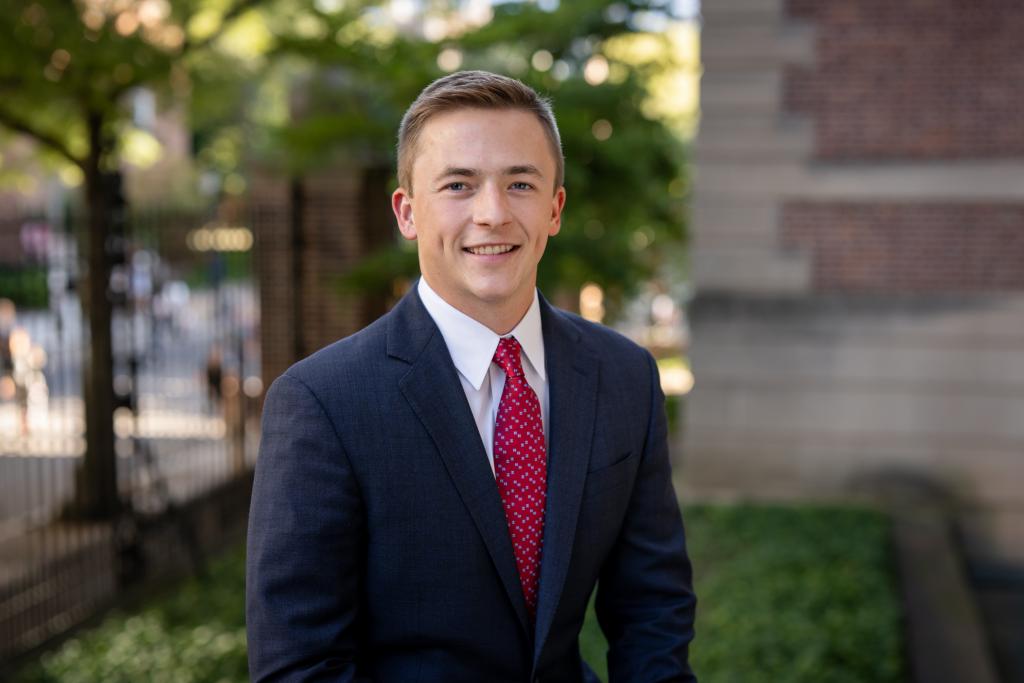The Week that Was: All of Lawfare in One Post
Your weekly summary of everything on the site.
Published by The Lawfare Institute
in Cooperation With

Bryce Klehm announced this week’s Lawfare Live event, in which Molly Reynolds, senior fellow in Governance Studies at the Brookings Institution, joined Benjamin Wittes, Lawfare’s editor in chief, to answer questions from Lawfare readers about potential reforms in Congress. The discussion included changes to Congress’s budgeting process and improvements in Capitol security in light of the Jan. 6 attack. Reynolds discussed the context surrounding Congress’s Power of the Purse Act, whose passage would provide Congress with more control over its spending power. Support Lawfare on Patreon for access to this and other Lawfare Live events:
powered by CrowdcastBobby Chesney and Trey Herr explained President Biden’s executive order on cybersecurity. They described the context surrounding the order, what the order aims to do and what problems remain unaddressed. Bryce Klehm shared the directive itself.
Jen Patja Howell shared the penultimate episode of the After Trump podcast series, which features a discussion of the independence of the Justice Department and the executive’s interference in the department’s work:
Howell also shared a conversation on the Lawfare Podcast about the intensifying conflict in Israel and the Palestinian territories. Lawfare’s Scott Anderson discussed the heated situation with Natan Sachs, a fellow at the Brooking Institution and director of the Center for Middle East Policy, and Zaha Hassan, a human rights lawyer and visiting fellow at the Carnegie Endowment for international peace. They spoke about the political context surrounding the conflict and what it means for the Biden administration’s geopolitical aims in the region:
Howell also shared the most recent episode of Rational Security, covering the conflict in Israel and the Palestinian territories, the Colonial Pipeline hack and division within the Republican Party—along with a special farewell to Susan Hennessey:
Rohini Kurup shared a livestream of a Senate Appropriations Committee hearing about domestic violent extremism, featuring testimony from Attorney General Merrick Garland and Secretary of Homeland Security Alejandro Mayorkas:
Howell also shared an episode of the Lawfare Podcast featuring a no-bull version of Garland and Mayorkas’s hearing on domestic violent extremism:
Paul Rosenzweig questioned the widely accepted notion that the private sector owns 85 percent of U.S. infrastructure.
Stewart Baker shared the latest edition of the Cyberlaw Podcast, featuring discussion of the Colonial Pipeline ransomware attack, artificial intelligence hacking, stalking concerns related to Apple’s new AirTags and Moscow’s proposal concerning U.N. cybercrime:
Howell also shared an episode of the Lawfare Podcast, featuring Lawfare Editor-in-Chief Benjamin Wittes’s discussion with David Ignatius of the Washington Post and Jack Goldsmith, Lawfare co-founder and professor of law at Harvard Law school, about the remarkable story of former Devin Nunes staffer and member of the Trump administration Kash Patel. The conversation covered Patel’s role near the end of the Trump administration and what his rise reveals about the Trump presidency:
Bill Priestap and Holden Triplett argued that reliable information security will probably remain evasive until employees are properly safeguarded.
Jordan Schneider shared an episode of ChinaTalk focusing on the politics related to Tesla in China, the future of the semiconductor industry and open source’s place in American industrial policy. Schneider discussed these issues with Kevin Xu, the founder of the Interconnected newsletter:
Erica Borghard contended that the conversation about cyberspace should expand beyond the military versus intelligence argument.
Laurence Helfer and Molly Land argued that comparing the Facebook Oversight Board to an international human rights tribunal illustrates that the board’s ability to meaningfully impact Facebook’s behavior will depend on how well it develops human rights norms, whether Facebook meaningfully accepts those norms and how successful the board is in overcoming challenges to its position as an authoritative body.
Howell also shared the next episode in the "Arbiters of Truth" series on the Lawfare Podcast, in which Evelyn Douek and Quinta Jurecic discussed the Nextdoor app—which seeks to connect neighbors—with journalist Will Oremus. They spoke about Nextdoor’s content moderation challenges and the app’s role as a replacement for weakening local news. The Facebook Oversight Board’s ruling on Donald Trump’s account also weaved its way into the conversation, as it often does:
Shaiba Rather examined the collapse of India’s coronavirus response.
Lester Munson shared an episode of the Fault Lines podcast covering some key developments in Africa. Munson spoke with Ambassador Cindy Courville, the first ambassador to the African Union, about how the U.S. should assist in Northern Mozambique and Ethiopia and how policymakers should address their focus toward African affairs:
And Schneider also shared an episode of the ChinaTalk podcast in which he spoke with Saikat Chakrabarti, Rep. Alexandria Ocasio-Cortez’s former chief of staff, and Zack Exley, a former member of Bernie Sanders’s 2016 presidential campaign, about industrial policy and the drafting of the Green New Deal, among other topics:
And that was the week that was.





